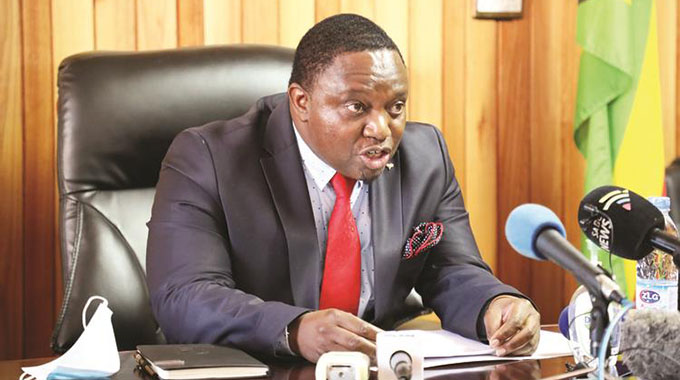SADC spotlights social media abuse, cyber terrorism

Crime Reporter
AMID a surge in cyber terrorism, that include social media propaganda and extremism, SADC member states have been called upon to set up robust mechanisms that counter the spread of the disturbing trend which threatens peace in the region.
While addressing a virtual meeting of the SADC/Southern Africa Regional Police Chiefs Cooperation Organisation (SARPCCO), Home Affairs and Cultural Heritage Minister Kazembe Kazembe said an upsurge in the use of social media as propaganda tools for promoting violence and extremism is becoming a worrisome trend globally.
This comes as President Mnangagwa, who is the current chairperson of the SADC Organ on Politics, Defence and Security Cooperation, and the ruling Zanu PF party have expressed concern with vigilante groups who are fanning anti-Government sentiment on social media platforms.
It also comes as Zimbabwe recently gazetted the Cyber Security and Data Protection Bill, which seeks to protect citizens from cyber-terrorism and other forms of abuse that are inherent on social media platforms and the internet.
Minister Kazembe said SADC countries, like the rest of the world, have not been spared and continue to suffer immensely as a result of extremism and terrorism.
“The irreparable scars caused on society by extremism and terrorism demands that we put into action robust strategies aimed at countering the gruesome phenomenon. As a region, we are alive to the fact that no country is immune to the threat of terrorism, extremism and radical ideologies,” said Minister Kazembe.
He said the internet and the social media had in recent times become favourite tools for promoting extremist ideologies and are not constrained by any national borders.
“Indeed, the increasingly sophisticated use of the internet and social media as propaganda tools for violence and extremism are indeed worrisome.
“Furthermore, acts of terror are constant reminders that the only way to effectively confront terrorism is to strengthen counter-terrorism and cooperation at all levels. We strongly believe that a terrorist and extremist-free society requires enhanced regional and international cooperation, including specialised training in security and sophisticated technological equipment as well as the sharing of information, knowledge and technology transfer.
“As police chiefs, you have to tirelessly work together and learn from each other to ensure the region takes an effective approach in defending against common threats posed by terrorism and transnational organised crime,” said Minister Kazembe.
Apart from having to content with the novel scourge of cyber-terrorism, Minister Kazembe said SADC member states have to confront transnational organised crimes such as human trafficking, drug trafficking, money laundering, poaching, smuggling, among other criminal activities that continue to destabilise the region both socially and economically.
“There is no doubt that due to our limited technology and human capacity, criminal syndicates are exploiting these gaps to create havens for their illicit enterprises in the region. The need therefore to make the Sadc region safer from transnational organised crimes cannot be overemphasised.
“More importantly, I urge all member countries to continue strengthening cooperation in established regional frameworks, such as implementation of the Law Enforcement Against Poaching (LEAP) strategy, Counter-Terrorism strategies, to mention just a few.”
The meeting was attended by the International Criminal Police Organisation (Interpol) secretary general Dr Jürgen Stock, the executive secretary of the SADC Secretariat Dr Stergomena Lawrence Tax, SARPCCO chairperson and Commissioner General of Zimbabwe Republic Police Godwin Matanga, police chiefs, the SADC Director of the Organ on Politics Defence and Security, Mr Jorge Cardoso, the head of Interpol Regional Bureau Harare/SARPCCO Co-ordination Office, Mr Mubita Nawa, directors of Criminal Investigation Departments and chairpersons of SARPCCO Technical Organs.
Comments